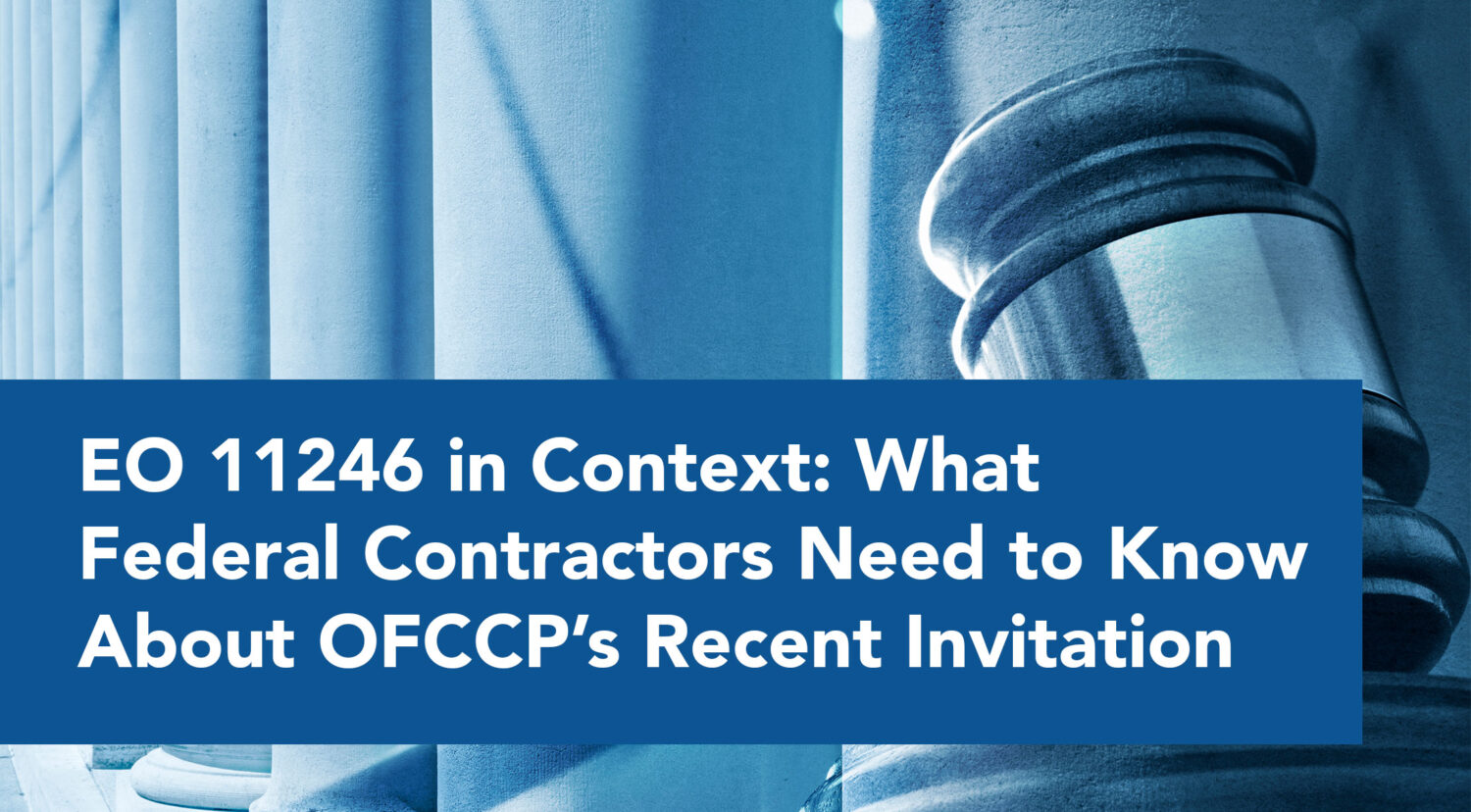

EEOC’s 2018 Performance Report highlights best practices for preventing discrimination
In mid-November the U.S. Equal Employment Opportunity Commission released a report looking at the agency’s performance during the 2018 fiscal year. The annual Performance and Accountability Report looked at steps the EEOC has taken to reduce backlogs, secure financial restitution for victims of discrimination and improve it’s digital capacity. Overall, the report demonstrates that the agency significantly increased it’s outreach efforts and enforcement actions over the last year.
According to the agency’s most recent report, the EEOC secured more than $505 million for victims of discrimination in private workplaces and within local, state and federal government institutions. This includes approximately $354 million for victims of employment discrimination in private sector and state and local government workplaces through mediation, conciliation, and settlements. It also includes $98.6 million for federal employees and applicants. Only $53.6 million came as a result of charging parties through litigation.
As part of the EEOC’s digital efforts, the agency launched a nationwide online inquiry and appointment system in 2018. This new system led to a 30 percent increase in inquiries and over 40,000 intake interviews.
In 2018, the EEOC also increased it’s outreach efforts to better educate the public about employment discrimination and their rights and responsibilities in the workplace. The EEOC’s report shows that the agency’s outreach efforts reached 398,650 individuals. The EEOC also conducted more than 300 Respectful Workplaces trainings that reached over 9,800 employees and supervisors.
The recently released performance report also shows the EEOC also made significant progress in reducing its backlogs. According to the report, the EEOC’s private sector backlog was reduced by 19.5 percent, the backlog of federal employee appeals decreased by 19.4 percent, the backlog of federal employee hearings went down by 8.6 percent, and the backlog of Freedom of Information Act (FOIA) requests was cut by 7.6 percent.
The report also drills down into specific discrimination cases the EEOC has handled over the last fiscal year and these cases provide insight for employers looking to guard themselves from discrimination claims in the future. Here are three best practices for preventing discrimination in the workplace.
A. Reasonable Accommodation
This year, a federal court upheld a ruling that Dollar General violated the Americans with Disabilities Act when an employee at one of the company’s stores was fired for drinking juice purchased at the store where she worked before paying for it. The employee allegedly drank the juice to treat a hyperglycemic attack. The employee had previously asked management to keep a juice at the register where she worked to treat such attacks, but was forbidden from doing so.
Under the ADA, employees with disabilities have the right to reasonable accommodations that will allow them to do their jobs. The federal court ruled that once the employee requested the reasonable accommodation of keeping a beverage at her register to treat her diabetes, Dollar General was bound to explore what types of accommodations could be made.
Whether or not an employee specifically references the ADA or uses the words reasonable accommodation, it is up to employers to comply with the law. In places where reasonable accommodations are requested employers must take the time to explore their options, even if they don’t believe a solution exists. Failing to do so can result in a violation.
B. Hostile Work Environment
Employers often have policies and procedures in place for combating employee-on-employee harassment. But often times, employers might not realize it is also their responsibility to address harassment from customers.
This year a federal court upheld a jury verdict related to a hostile work environment case involving Costco where an employee was sexually harassed repeatedly by a customer. The employee took unpaid medical leave as a result of the harassment and was ultimately fired by Costco.
Under federal law, employers are required to protect employees from within and without. Just as retailers can ban customers who have shoplifted from entering their stores, they can also ban customers who present a danger to their employees. Those employers who do not take action to protect employees from harassment can be found in violation of federal law.
C. Financial Burden
When it comes to physically demanding jobs, employers have a right to hire only those employees who can meet the essential functions of the position. Often times, at interviews for jobs that require manual labor, a candidate might be asked to submit to a weight test to determine if they are able to meet the requirements of the job. What employers are not allowed to do, is request testing that presents a financial burden to prospective candidates.
This year, a federal court upheld a ruling that determined BNSF Railway Co. violated the ADA by revoking a job offer because a job applicant failed to obtain an MRI at his own expense. The man had been offered a position pending a pre-employment medical review. The candidate had a history of back issues, but had been cleared by doctors who said he could fulfill the demands of the position.
The court ruled that BNSF could not make the candidate’s employment contingent on costly testing. Under the ADA, employers are not allowed to impose this type of financial burden on job applicants with perceived or real impairments or disabilities. Those employers requiring applicants to complete testing must mandate that each candidate for a position is required to undergo the same testing. If testing is required on a case by case basis, a prospective employee can claim discrimination.
The EEOC’s track record of having rulings related to their cases upheld in federal courts shows the importance of preventing discrimination in the workplace before violations turn into costly court battles.





